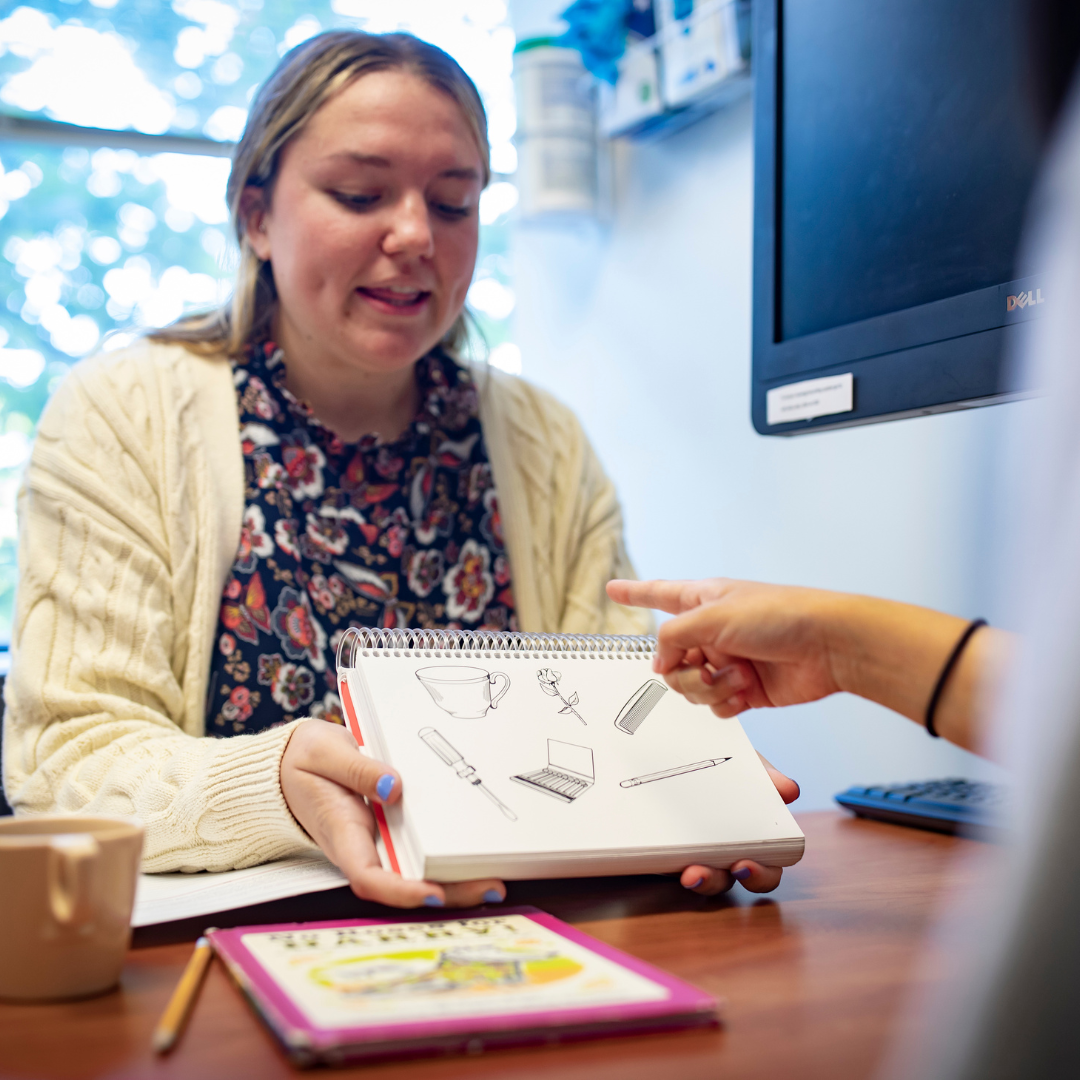Speech Care for Cerebral Palsy
Cerebral palsy (CP) is a group of neurological conditions that affect muscle movement and coordination. CP is typically caused by damage or abnormalities within the brain before birth, leading to a variety of permanent muscle and movement problems that vary widely in severity from person to person. It is non-progressive and does not have a cure, but supportive treatments can assist with motor and communication skills over time. The condition may be, but isn’t always, accompanied by intellectual disabilities and or issues such as impaired vision, hearing loss, and scoliosis.
 How does cerebral palsy affect communication and swallowing?
How does cerebral palsy affect communication and swallowing?
Communication and/or swallowing disorders are present in more than 75 percent of individuals with cerebral palsy, according to the National Institute of Health. Due to the impact of cerebral palsy on motor skills, many individuals with the disease may experience problems with speaking, chewing, or swallowing. In addition, the combination of motor, intellectual, and sensory impairments can otherwise impact communication. Dysarthria — defined as the inability to articulate words normally due to muscle impairment — is one of the most common speech issues among children with CP specifically.
How can speech-language pathology services help?
There are a variety treatments that can help support a child or adult with cerebral palsy, depending on the impairments and needs of the individual. Strengths and areas of need are identified through formal and informal assessments. Based on the findings of the evaluation and the goals of intervention, a variety of therapies and assistive devices may be introduced. Other professionals such as physical therapists and occupational therapists, among others, may collaborate with speech-language pathologists to provide interdisciplinary care of the client with CP.
To address communication and/or eating difficulties specifically, speech-language pathology can help improve the ability to communicate or swallow in a variety of ways:
- Improving speech intelligibility through articulation programs and dysarthria drills
- Modifying diet textures and liquid consistency while teaching compensatory strategies to improve swallowing safety
- Learning new ways to communicate, like using alternative communication devices
While speech-language therapy is only one aspect of treatment for individuals with cerebral palsy, it can be helpful in improving overall communication and making tasks like speech and swallowing easier.
The Speech-Language institute (SLI) of Salus University offers assessments and individualized treatment plans that can help individuals with Cerebral Palsy improve their communication and swallowing function. For more information on SLI’s services or to schedule an appointment, call 215.780.3150.